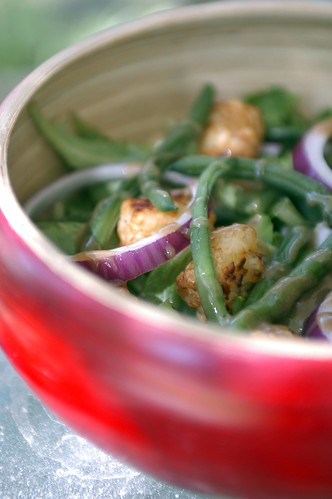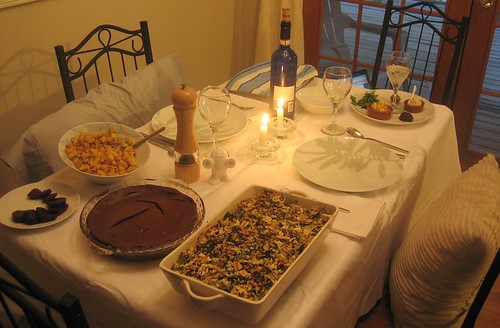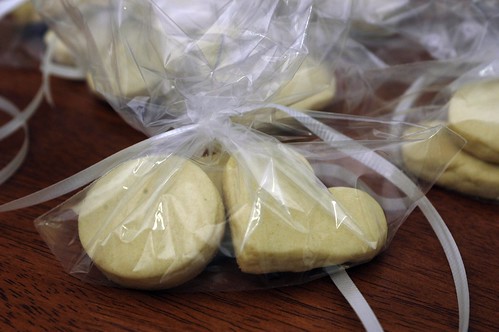 |
| Clockwise from top left: roasted beets with horseradish sauce, carrot top (karpas), asparagus, carrot, haroset, roasted potatoes |
Being vegan at holidays is a challenge for some people. It's a time when we confront our food nostalgia and our family's expectations. But Passover has unique challenges for vegans, especially if they are Ashkenazi.
There are two basic camps at Pesach. Those who eat kitniyot (beans, peanuts, corn, rice, and so on) and those who don't. If you noticed, most protein-heavy vegan foods fall into that kitniyot category. This makes it a challenge for vegan Ashkenazim who avoid kitniyot. My family's tradition, despite my European ancestry, is to eat kitniyot. We really weren't very strict about Passover growing up, and I don't find Passover too hard to negotiate now because of that.
Some general tips about being vegan at Pesach, and then I'll start with the recipe lists.
• Spring vegetables are starting to roll in, and this is a good time to focus on vegetables.
• Think like a raw foodist. Most of the foods that raw foodists eat are Passover friendly and free of kitniyot. Raw dessert recipes are especially helpful.
• Alternatively, think like an
Eat-to-Live dieter. This eating plan is also very Passover friendly.
•
Making your own plant milk is really easy to do. Cashew milk and almond milk are good Passover milk choices. And
cashew cream is great for desserts. Leave out the sweeteners for savory uses.
• Speaking of nuts, if you don't eat kitniyot, tree nuts are your friend. Peanuts, sesame seeds, poppy seeds, and sunflower seeds are all kitniyot, but tree nuts are OK to consume for everyone.
• Quinoa is a really popular grain at Passover because it's not actually a grain. Quinoa is high in protein relative to other grains. Quinoa is usually considered acceptable for Passover, though it can be hard to find quinoa with a Passover hechsher if that's your tradition. Use quinoa to make a
breakfast porridge, pilaf, or even
quinoa milk.
• The seder plate usually contains some non-vegan items. Using a beet instead of a lamb shank is a long-standing tradition. A beet on the seder plate is even mentioned in the Talmud. Wrap a beet in foil, roast it in the oven for an hour, and then peel or rub off the skin. The beet will look bloody, and that's the point.
• Instead of an egg, you can use: a wooden or plastic egg, an avocado pit, or (if kitniyot aren't an issue) mustard seeds. They're all symbols of growth and renewal.
• For those who eat kitniyot, 1/4 cup pureed silken tofu replaces one egg in a kugel. I've tried this substitution in many kugels, and it always works.
Vegan Passover Recipes without Kitniyot
•
Latkes (replace the corn starch with potato starch and the flour with matzah cake meal or matzah meal)
• Roasted potatoes
•
Matzo farfel granola (honey=agave)
• Baked apples or poached pears
• Haroset, of course!
•
Nut roast
•
Chocolate Toffee Matzo (non-dairy kosher for Passover margarine can be ordered online from a kosher retailer)
•
Breakfast quinoa (use almond or cashew milk)
•
Quinoa breakfast porridge (different from the first link)
•
Potato Leek Soup
• Tzimmes
• Vegan
chopped liver spread (no green beans or eggs!)
•
Potato Mushroom Kugel (use KP margarine or just sub oil)
•
Gefilte fish
•
Quinoa Stuffed Peppers (skip the sauce)
•
Tomato Bisque (saute in oil and use potato starch instead of flour)
• Roasted portobello mushroom
• Cornmeal or rice porridge
Helpful Cookbooks
Olive Trees and Honey, by Gil Marks
No Cholesterol Passover Recipes, by Debra Wasserman
The (Almost) No Fat Holiday Cookbook, by Bryanna Clark Grogan
Party Vegan, by Robin Robertson
The Vegan Table, by Colleen Patrick-Goudreau
Elsewhere on the Internet
• Advice and recipes from
Isa Chandra Moskowitz on Heeb'n'vegan
•
Nut-based Passover cuisine, also on Heeb'n'vegan
• And one final
Passover guide on Heeb'n'vegan
• PETA's page of
Passover recipes
•
VegNews













